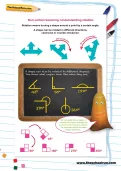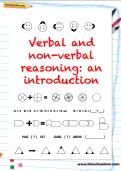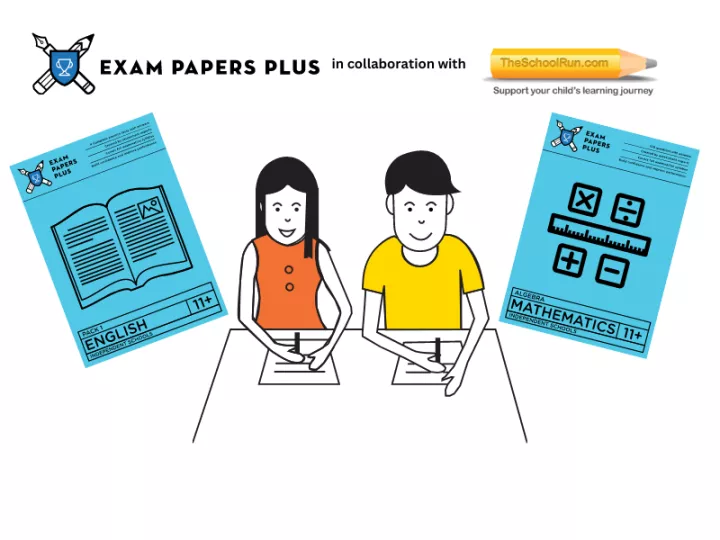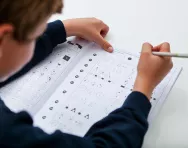Important update from TheSchoolRun
For the past 13 years, TheSchoolRun has been run by a small team of mums working from home, dedicated to providing quality educational resources to primary school parents. Unfortunately, rising supplier costs and falling revenue have made it impossible for us to continue operating, and we’ve had to make the difficult decision to close. The good news: We’ve arranged for another educational provider to take over many of our resources. These will be hosted on a new portal, where the content will be updated and expanded to support your child’s learning.
What this means for subscribers:
- Your subscription is still active, and for now, you can keep using the website as normal — just log in with your usual details to access all our articles and resources*.
- In a few months, all resources will move to the new portal. You’ll continue to have access there until your subscription ends. We’ll send you full details nearer the time.
- As a thank you for your support, we’ll also be sending you 16 primary school eBooks (worth £108.84) to download and keep.
A few changes to be aware of:
- The Learning Journey weekly email has ended, but your child’s plan will still be updated on your dashboard each Monday. Just log in to see the recommended worksheets.
- The 11+ weekly emails have now ended. We sent you all the remaining emails in the series at the end of March — please check your inbox (and spam folder) if you haven’t seen them. You can also follow the full programme here: 11+ Learning Journey.
If you have any questions, please contact us at [email protected]. Thank you for being part of our journey it’s been a privilege to support your family’s learning.
*If you need to reset your password, it will still work as usual. Please check your spam folder if the reset email doesn’t appear in your inbox.
What is a grammar school?

There are currently 164 grammar schools in England (of around 24,000 state schools), and 69 in Northern Ireland. Historically, grammar schools were those that taught classical languages such as Latin and Ancient Greek, but over time, this role has evolved. Today’s grammar schools are state secondary schools that have a strong focus on academic achievement and select pupils on the basis of ability, unlike non-selective, all-ability comprehensive schools.
Grammar schools only exist in one quarter of areas in England, and there are no grammar schools at all in Wales or Scotland.
Grammar schools explained
‘Grammar schools are defined by their pursuit of academic excellence, traditional teaching methods and ethos of strict discipline,’ explains Bob McCartney, chair of the National Grammar Schools Association. ‘Students are selected based on their academic potential, to identify those who are most suitable for this type of education.’ Children who either don’t apply for a grammar school place or fail to meet the necessary academic standard go instead to a non-selective comprehensive school.
Grammar schools may be co-educational or single sex (although most single sex schools accept both boys and girls in the sixth form). Despite being selective, grammar schools are state schools and are funded by the government.
In addition, there are eight bilateral schools in England, which admit pupils of all abilities but reserve a certain number of places in a ‘grammar stream’ for those who meet the academic requirements.


Prepare Your Child For The 11+ Exam
- Essential 11+ English and maths skills
- Verbal and non-verbal reasoning questions
- Reading comprehension worksheets
- CLOZE test worksheets
The grammar school curriculum
Generally, the GCSE curriculum in grammar schools is similar to that in comprehensive schools, with the same core subjects. ‘However, grammar schools tend to give more weight to academic subjects, whereas comprehensives may offer more vocational courses,’ explains Bob. For example, grammar schools are more likely to offer biology, chemistry and physics separately, rather than as a combined science qualification, along with a greater range of modern languages and specialist subjects such as politics and economics.
In addition, a large number of grammar schools have converted to academy status. This gives them more flexibility over their teaching and curriculum. For instance, children may take some GCSEs in Year 9 and 10, rather than doing them all in Year 11.
Exam Papers Plus & TheSchoolRun.com

If you're looking for practice papers for your child's 11+, our partners at Exam Papers Plus have papers, courses and mock exams for each area.
And their Pretest Plus offers online tests and video courses to help your child succeed at CAT, ISEB PRETEST, CEM SELECT and UKISET examinations.
How do children apply for a grammar school place?
Children who want to apply for a place at a grammar school need to take a test (commonly known as the 11+ in England, and the secondary transfer test in Northern Ireland) at the beginning of Year 6.
Four possible skills are tested: English, maths, verbal reasoning and non-verbal reasoning. You can find out more about testing procedures by contacting the grammar school or your local authority. You don’t have to live within the grammar school’s local authority area to apply for a place.
Although the 11+ is designed to minimise the impact of coaching, many parents do have their children tutored to help them through the exam, particularly because English state primary schools don’t do any preparation for the tests. This differs, however, in Northern Ireland. ‘Here, many children who wish to apply for a grammar school place are prepared for the tests in their primary school,’ says Bob. ‘This, and the fact that about and 40 per cent of pupils gain a grammar school place, reduces the impact of private coaching.’
Pass marks for the 11+ vary. In some areas, as many as 30 per cent of pupils reach the standard required for a grammar school place, whereas in others, just three per cent are successful. The required standard can also vary from year to year, so whether your child gets in will depend on how their peers perform in the test. Most schools publish information about their pass marks over the past few years so you can gauge whether your child is likely to get a place.
It’s also important to note that just passing the 11+ is not a guarantee of a grammar school place. If there are fewer places than children who pass, schools will use their own oversubscription criteria (such as offering places to those who achieved the very highest marks).
Grammar school pros and cons
The grammar school system is the source of ongoing debate. Advocates of grammar schools say:
- They remove the ‘postcode lottery’ system of gaining secondary school places based on catchment area.
- They provide an outstanding state education.
- The focus is on academic achievement and discipline.
- They promote core subjects and traditional teaching methods.
- They open up an independent-style education to pupils whose families could not afford to pay private school fees, encouraging social mobility and diversity.
- They tend to offer excellent facilities and extracurricular activities.
However, others argue that there are disadvantages to the grammar school system, for example:
- They lead to an attainment gap in grammar school areas, with children who go to comprehensives losing out.
- The 11+ system favours families who can afford intensive tutoring.
- 11+ thresholds change from year to year, so there is no consistency in which pupils win a place.
- They prevent children from going to their local school, as catchment areas are generally not taken into account.
- Children may gain a grammar school place through tutoring but then struggle to keep up.
Currently, the 1998 Education Act prevents any new grammar schools from being opened in England. However, there are government proposals to "relax" the ban on opening new selective schools and allow existing grammar schools to grow and expand, perhaps by opening a ‘satellite’ or ‘extension’ school in neighbouring areas, at a future date.
NB: TheSchoolRun receives a small commission from sales made through Exam Paper Plus.








